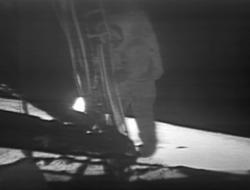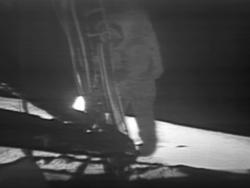The demonstrated success in space flight is the result of electronic technology developed at Cape Canaveral, the J. F. Kennedy Space Center, and other sites. A wide variety of advances in radar tracking, data telemetry, instrumentation, space-to-ground communications, on-board guidance, and real-time computation were employed to support the U.S. space program. These and other electronic developments provided infrastructure necessary for the successful landing of men on the moon in July 1969 and their safe return to earth.
Pulse-doppler

YearAdded:
Image Credit: Courtesy Wikipedia/NASAImage Caption: A culmination of research in radar tracking, data telemetry, instrumentation, space-to-ground communications, on-board guidance, and real-time computation: the 1969 moon landing.Era_date_from: 1950
2001
Innovations

The demonstrated success in space flight is the result of electronic technology developed at Cape Canaveral, the J. F. Kennedy Space Center, and other sites. A wide variety of advances in radar tracking, data telemetry, instrumentation, space-to-ground communications, on-board guidance, and real…
Read More

